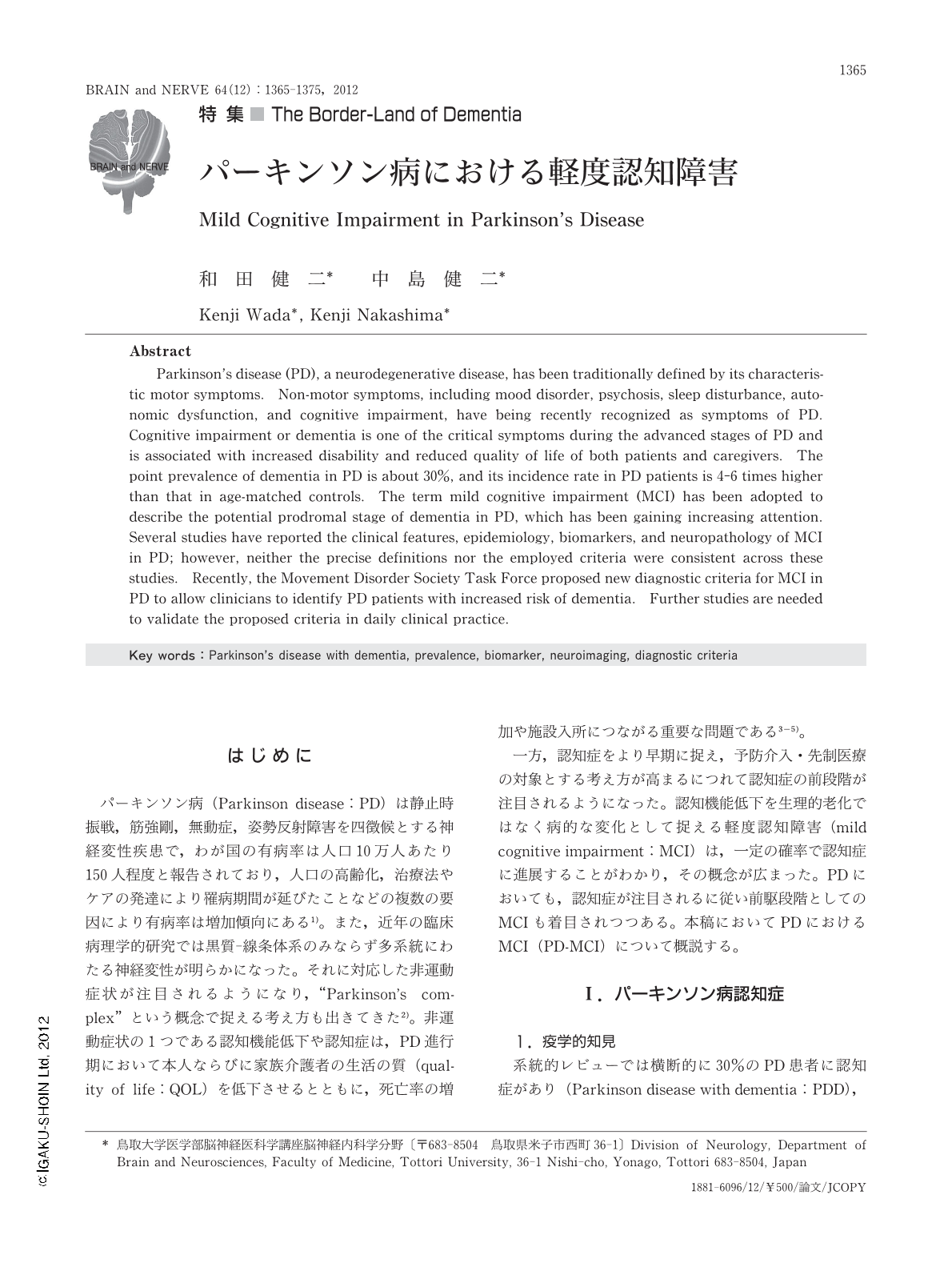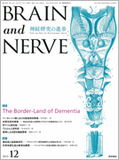Japanese
English
- 有料閲覧
- Abstract 文献概要
- 1ページ目 Look Inside
- 参考文献 Reference
はじめに
パーキンソン病(Parkinson disease:PD)は静止時振戦,筋強剛,無動症,姿勢反射障害を四徴候とする神経変性疾患で,わが国の有病率は人口10万人あたり150人程度と報告されており,人口の高齢化,治療法やケアの発達により罹病期間が延びたことなどの複数の要因により有病率は増加傾向にある1)。また,近年の臨床病理学的研究では黒質-線条体系のみならず多系統にわたる神経変性が明らかになった。それに対応した非運動症状が注目されるようになり,“Parkinson's complex”という概念で捉える考え方も出きてきた2)。非運動症状の1つである認知機能低下や認知症は,PD進行期において本人ならびに家族介護者の生活の質(quality of life:QOL)を低下させるとともに,死亡率の増加や施設入所につながる重要な問題である3-5)。
一方,認知症をより早期に捉え,予防介入・先制医療の対象とする考え方が高まるにつれて認知症の前段階が注目されるようになった。認知機能低下を生理的老化ではなく病的な変化として捉える軽度認知障害(mild cognitive impairment:MCI)は,一定の確率で認知症に進展することがわかり,その概念が広まった。PDにおいても,認知症が注目されるに従い前駆段階としてのMCIも着目されつつある。本稿においてPDにおけるMCI(PD-MCI)について概説する。
Abstract
Parkinson's disease (PD), a neurodegenerative disease, has been traditionally defined by its characteristic motor symptoms. Non-motor symptoms, including mood disorder, psychosis, sleep disturbance, autonomic dysfunction, and cognitive impairment, have being recently recognized as symptoms of PD. Cognitive impairment or dementia is one of the critical symptoms during the advanced stages of PD and is associated with increased disability and reduced quality of life of both patients and caregivers. The point prevalence of dementia in PD is about 30%, and its incidence rate in PD patients is 4-6 times higher than that in age-matched controls. The term mild cognitive impairment (MCI) has been adopted to describe the potential prodromal stage of dementia in PD, which has been gaining increasing attention. Several studies have reported the clinical features, epidemiology, biomarkers, and neuropathology of MCI in PD; however, neither the precise definitions nor the employed criteria were consistent across these studies. Recently, the Movement Disorder Society Task Force proposed new diagnostic criteria for MCI in PD to allow clinicians to identify PD patients with increased risk of dementia. Further studies are needed to validate the proposed criteria in daily clinical practice.

Copyright © 2012, Igaku-Shoin Ltd. All rights reserved.


